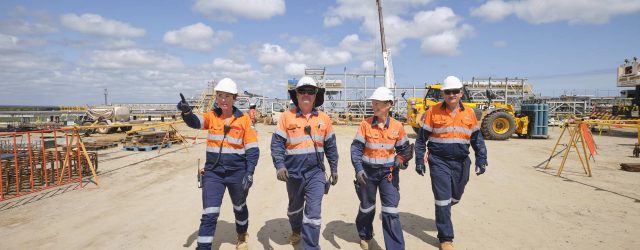Productivity is the skills silver-bullet, not migrants or training
Posted: 27th August 2022
Posted in: Blog

Posted: 27th August 2022
Posted in: Blog
It may seem heresy to say this but increasing migration will not solve Australia’s critical workforce shortage—particularly Australia’s third largest industry, construction. The Federal Government’s Jobs and Skills Summit next week will rightfully discuss improvements to migration settings and training programs but, whilst important, neither are a silver bullet to address the problem of current skills shortages. The numbers simply do not stack up. Here’s why.
Infrastructure Australia identified that for the construction industry to deliver the planned pipeline of projects it needs another 105,000 workers right now, which would be over half of the annual government’s target skilled migration intake, if agreement is reached at the Summit to increase this to 200,000 a year.
Australia is also facing worldwide competition for construction workers. The strategy of investing big in infrastructure in response to Covid is a worldwide trend and, unlike previous booms, getting people on planes is a lot harder. The lure of our golden beaches and warm sunny weather is not enough to counter migrant concerns over high cost of living, bushfires, floods and Covid lockdowns not to mention the opportunity to work on once in a lifetime projects like the Saudi Arabian Giga Project Neom. It is fair to say the shine has come off Australia.
Onto the topic of training, who are we going to train? We are technically at full employment. Yes, increased investment in training is necessary; however, in today’s high employment environment it can mean transferring the problem from one industry to another as workers upskill from lower skilled industries to higher skilled ones.
The answer must be finding ways to improve productivity—doing more with less.
Greater worker flexibility will go a long way to improving productivity and participation in the industry. Awards and agreements that dictate that all workers must take their rostered day off (RDO) on the same day is an example of outdated, rigid work practices that need to change. We are not arguing that RDOs should be abolished without more general reduction in working hours (something targeted by the Construction Industry Culture Standard), but workers should be entitled to choose when they take their RDO and not have to take them on the same day as all other workers on a project. As well as providing increased worker flexibility, it would enable sites to remain open and productive for longer. The flexibility argument is not just one of productivity but also attraction and retention of workers. The industry needs a significant overhaul if it is ever to emerge as an employer of choice for future generations.
An even greater opportunity to improve the industry’s productivity lies in how projects are procured and delivered. Consider for example the role of engineers on projects. One of the industry’s biggest shortages is in the engineering profession so why tie engineers up verifying information not able to be relied upon, producing reams of unnecessary information at tender that will not be read and reviewing designs that has been reviewed already.
There is a genuine opportunity for government to positively disrupt the construction industry by acting as a model client and driving change through procurement processes. Changes to government processes would not only free up valuable resources in the industry, but drive innovation and productivity, increase sovereign capability, reduce carbon emissions and improve industry culture. The monetary opportunity alone is huge with $15 billion per annum in savings if we just halve the gap in productivity growth between construction and other industries.
Improvements in productivity therefore must trump finding ways to get more people on planes and be the primary focus of the Jobs and Skills Summit.
Opinion piece by Jon Davies, Chief Executive Officer, Australian Constructors Association
Originally posted via The Australian Financial Review 23 August 2022.